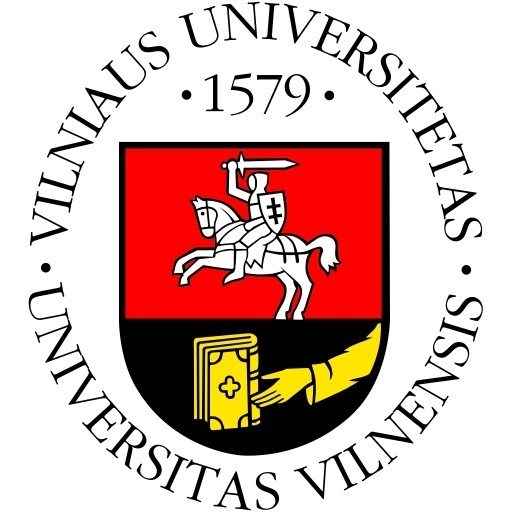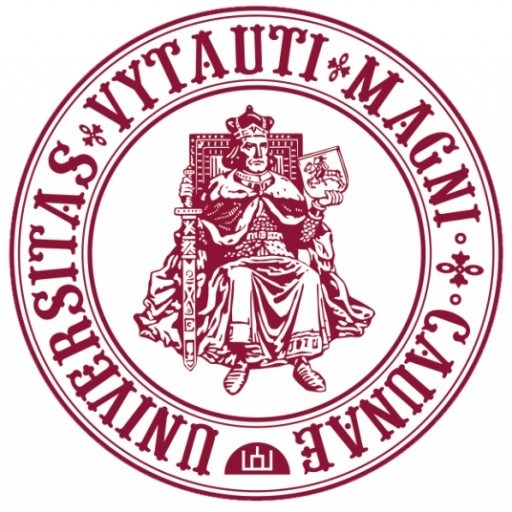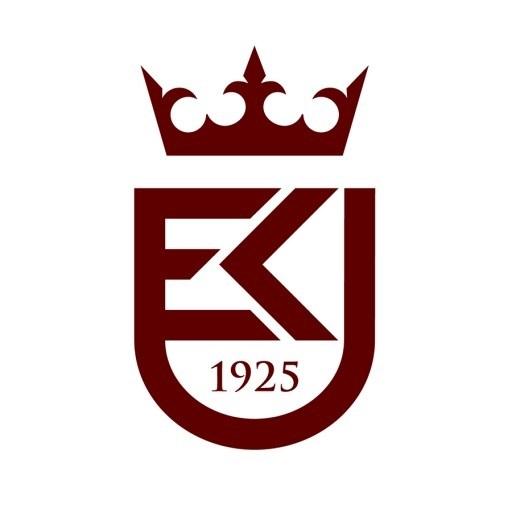Photos of university / #vilniusuniversity
The Bachelor’s degree in European and Russian Studies at Vilnius University offers an in-depth exploration of the historical, political, cultural, and economic dimensions of Europe and Russia. This interdisciplinary program is designed to provide students with a comprehensive understanding of the complex relations between Eastern and Western Europe, as well as the unique perspectives and developments within Russia. Students will engage with a wide range of thematic modules, including European integration, Russian politics and society, international relations, history, language, and cultural studies, fostering a well-rounded academic experience.
The program emphasizes critical thinking, analytical skills, and a deep appreciation of cultural diversity, preparing graduates for careers in diplomacy, international organizations, think tanks, journalism, and other fields requiring expertise in European and Russian affairs. Teaching methods combine lectures, seminars, case studies, and interactive projects, encouraging active participation and practical understanding. Throughout their studies, students have opportunities for internships, study exchanges, and participation in conferences, which enhance their professional development and global outlook.
Vilnius University’s strategic location offers unique access to the political, economic, and cultural dynamics of the Baltic region, Eastern Europe, and Russia. The curriculum is delivered by experienced faculty members with expertise in history, political science, international relations, and linguistics. Students are encouraged to develop language skills in Lithuanian, English, Russian, and other European languages, facilitating effective communication and cultural exchange. The program aims to cultivate informed, engaged, and responsible citizens who can navigate the complexities of contemporary Europe and Russia, promoting mutual understanding and cooperation across borders.
Graduates of this program will be equipped with the knowledge and skills necessary to analyze geopolitical developments, assess policies, and understand the historical context shaping these regions today. The program’s multidisciplinary approach ensures that students gain a broad perspective, critical insights, and practical competencies applicable in various international fields. By enrolling in the European and Russian Studies program at Vilnius University, students embark on a challenging and rewarding academic journey that prepares them for active participation in global affairs and regional development.
The multidisciplinary Bachelor’s degree program in Eastern European and Russian Studies at Vilnius University offers students a comprehensive understanding of the political, historical, cultural, and social dynamics of Eastern Europe and Russia. This program is designed to equip students with critical analytical skills, language proficiency, and a nuanced perspective on regional issues, enabling them to engage effectively in academic, diplomatic, business, and cultural fields related to Eastern Europe and Russia. The curriculum combines core courses in history, politics, economics, and culture with specialized modules focused on area studies, regional institutions, contemporary developments, and intercultural communication. Students have the opportunity to study relevant languages, including Russian and other regional languages, to deepen their engagement with primary sources and authentic materials.
Throughout the program, students are encouraged to participate in internships, field studies, and exchange programs that provide practical experience and foster intercultural competence. Faculty members are experts in their fields, often involved in international research projects, and they emphasize a balanced approach to understanding the complex historical legacies and present-day realities of the region. The program also highlights the importance of contemporary issues such as regional security, integration processes, democratization, and economic development within Eastern Europe and Russia. Graduates of the program will be well-prepared for careers in international organizations, government agencies, NGOs, journalism, academia, or business sectors dealing with the region.
In addition to acquiring specialized knowledge, students develop critical thinking, research, and communication skills essential for analyzing regional issues and engaging with diverse cultures. The program aims to foster a deep contextual understanding of Eastern European and Russian societies, enabling graduates to contribute meaningfully to regional dialogue and diplomacy. The curriculum is regularly updated to reflect ongoing developments in the region, and students are encouraged to participate actively in seminars, conferences, and research projects. Graduates of the program will emerge with a broad international outlook, linguistic proficiency, and a solid foundation for lifelong learning and professional growth in the field of Eastern European and Russian Studies.
Program requirements for the Bachelor’s Degree in Eastern European and Russian Studies at Vilnius University include a combination of coursework, language proficiency, research projects, and internships. Students are expected to complete foundational courses in history, politics, and culture of Eastern Europe and Russia, which provide a comprehensive understanding of regional developments and historical contexts. Advanced courses focus on regional politics, international relations, economic development, and societal issues in Eastern European countries and Russia, enabling students to analyze contemporary challenges and opportunities.
A mandatory component of the program is the development of language skills; students must attain proficiency in at least one regional language, typically Russian or another language relevant to their area of specialization. Language courses are complemented by practical language practice, including conversation sessions, writing assignments, and reading exercises, to ensure communicative competence.
Research methodology is a core element, where students learn qualitative and quantitative research techniques, data analysis, and academic writing. They are required to complete a research paper or project, under supervision, on a topic related to Eastern European or Russian studies, demonstrating their ability to conduct independent scholarly work.
Internship experience is also a significant part of the curriculum. Students are encouraged to undertake internships in governmental institutions, international organizations, NGOs, or research centers to gain practical insights into policy-making processes, diplomatic affairs, and regional cooperation. This hands-on experience aims to prepare students for careers in diplomacy, international business, journalism, or academia.
Continuous assessment through exams, essays, presentations, and participation in seminars ensures that students meet the academic standards of the program. Additionally, students must demonstrate interdisciplinary knowledge and critical thinking skills, as well as a deep understanding of the socio-economic and political issues pertinent to Eastern Europe and Russia. Completion of the program requires successful defense of a final thesis, showcasing research, analytical, and written communication skills.
Funding for the Eastern European and Russian Studies program at Vilnius University includes a variety of options designed to support both undergraduate and graduate students. Most students enrolled in the program benefit from state-funded places, which cover tuition fees through government scholarships and Lithuanian national scholarships. These scholarships are typically awarded based on academic merit, applicant’s financial situation, or specific eligibility criteria such as nationality or prior achievements. Additionally, international students may have access to Erasmus+ mobility grants, which facilitate exchange opportunities and provide financial support for studies abroad, including partner institutions within the EU and partner countries.
Vilnius University also offers several internal scholarship programs aimed at supporting students financial constraints, academic excellence, or research activities. These include the Vilnius University Study Scholarships, which are awarded to outstanding students each semester. Students can also apply for targeted scholarships aimed at students from specific regions or enrolled in particular specializations within the Faculty of Human and Social Studies. Furthermore, some students may secure external funding through national or international organizations, foundations, and philanthropic entities that support studies in Russian and Eastern European disciplines.
For students seeking additional financial assistance, part-time work opportunities are available in university services or through collaboration with local organizations, allowing students to earn supplementary income during their studies. The university’s career center provides guidance and support in finding such employment options, which can help reduce financial burdens while gaining valuable experience in the field of international studies.
Many students also apply for specific project-funded grants for research or language acquisition, which can cover both tuition and living expenses. Some governmental or non-governmental programs dedicated to fostering regional expertise in Eastern European and Russian affairs may also provide stipends or fellowships for students pursuing advanced research or specialized training within this field.
Overall, funding opportunities for students in the Eastern European and Russian Studies program at Vilnius University are diverse and aimed at promoting access and excellence in education. Students are encouraged to explore all available options early in their study planning to ensure adequate financial support throughout their educational journey.
The Bachelor’s degree programme in Eastern European and Russian Studies at Vilnius University offers students a comprehensive understanding of the historical, political, cultural, and social dynamics of Eastern Europe and Russia. This interdisciplinary programme combines insights from history, political science, area studies, and language studies to prepare graduates for diverse careers in diplomacy, international organizations, journalism, academia, and cultural management. Throughout the course, students acquire proficiency in Russian and other regional languages, enhancing their communication skills and cultural competence. The curriculum emphasizes critical analysis of regional issues, development of research skills, and understanding of contemporary geopolitical developments affecting Eastern Europe and Russia. Students participate in lectures, seminars, and internships that foster practical knowledge and real-world experience. Vilnius University’s strategic location and international partnerships offer opportunities for student exchanges and collaborative projects with institutions across the region. Graduates of this programme gain not only language proficiency and regional expertise but also valuable intercultural competencies, making them well-equipped for careers requiring regional knowledge and cultural sensitivity. The programme is designed to be flexible, allowing students to tailor their studies according to their interests, with elective courses in areas such as security studies, economic development, and regional history. Additionally, the university supports students through academic advising, extracurricular activities, and access to resources like regional archives and language laboratories. Overall, the Eastern European and Russian Studies programme at Vilnius University aims to develop knowledgeable, skilled, and culturally aware professionals who can contribute to fostering international cooperation and understanding in the region.









